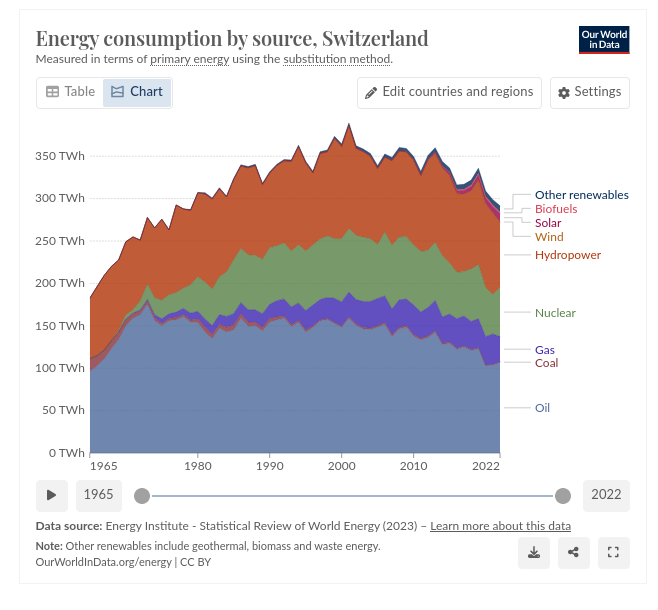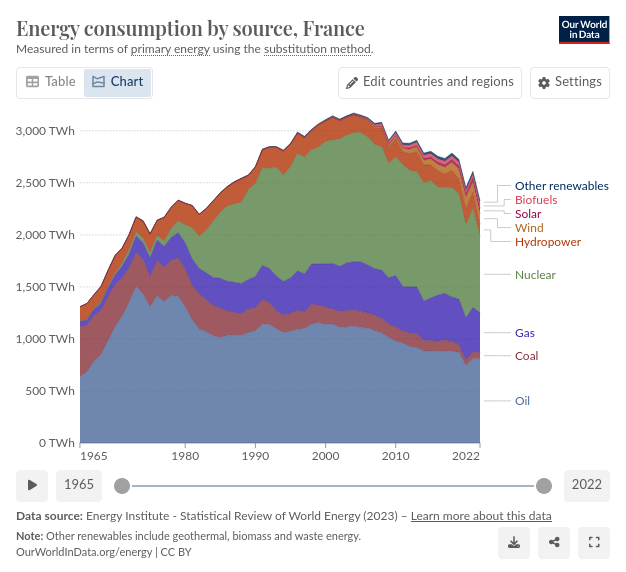To be fair, weren’t Valve the first company to do that? People were really annoyed at having to install steam just to play some Half-Life.
Of course, that was only 1 launcher, no launcher-in-launcher shenanigans back then.
To be fair, weren’t Valve the first company to do that? People were really annoyed at having to install steam just to play some Half-Life.
Of course, that was only 1 launcher, no launcher-in-launcher shenanigans back then.


Aside from echoing @SnotFlickerman@lemmy.blahaj.zone and Doctorow’s statements about unionizing, I am aware of a few others who are trying things that I’d describe as complimentary to unions.
This is a panel titled “Why hasn’t Open Source Won?” where several of the speakers attempt to sketch out a framework wherein a programmer would have more decision over how their code is used: https://youtu.be/k3eycjekIAk . I’ll admit, I’m not the most impressed with where they get to in the limited time they have. Nevertheless, I think it’s a useful angle of consideration to have in the tool belt.
This is an org/foundation that is trying to walk the walk with regards to governing tech democratically: https://nivenly.org/ I haven’t kept up with any recent developments of theirs.


First there was no difference between gaza/the Palestinians and Hamas, now there’s no difference between Hezbollah and Lebanon…


We also added the ability to pin the resource patch, and the count of remaining ore will update as the patch is mined. You can use this to keep an eye on how things are going, and be aware when a patch is running dry.
Yet another great mod transcending its mod status to be assimilated into the base game!


This is why I’m very pleased by how small in scope the upcoming Factorio expansion is compared to some of the mods that inspired/preceded it (notably Space Exploration).


Part real Greens, part Greenpeace, part Green-washing.


The background trend, unfortunately, is of the far right slowly but surely gaining votes. We pushed them back to third place today, but they still almost doubled the number of representatives they’ll be sending to parliament (from 89 to the projected ~130 for today’s elections).
IMO it’s largely a consequence of the center-left and center-right (Hollande, Macron) completely abandoning the working class, and demonizing the left whilst cozying up to the far-right (mostly Macron, though Hollande definitely slid right over his term).


The French political system, casually referred to as the “Republic of Friends,”
Where does the author get this? I’m French and have never heard of our system called as such - especially not by a French person.


Microsoft is pivoting its company culture
Oh yes, the thing they’re well known for succeeding at.


He called during his televised speech to get rid of the “ruckus causers”, separately from the far right.
The current largest leftist party had (until last night) close to a third of Parliament, and have a reputation of loudly contesting shit they don’t stand for.
I really don’t think Macron’s intention is to give them a chance at more votes. If anything, he’s hoping this forces leftist voters to move towards the center, seeing as how his own party barely cleared 14% (the largest far right party did over 30, and a smaller splinter party got around 7% on its own).


My cynical take: he wants to let the far right win the legislative elections while he still has close to 3 years left in his term.
He thinks this will “show” their electorate that voting far right doesn’t get you what you want.
At the same time, he can take advantage of the media bashing the leftist party has been getting for their vocal opposition to Israel’s actions since October 7 2023, and run them out of Parliament. At least, it’s a gamble he’s willing to make.
He is just as much of a clueless, egotistical liberal as David Cameron was, so your analogy is sadly pretty accurate.
This cannot be tolerated, even under Eisenhower.
I suddenly want to insert this into my everyday life


According to Our World In Data (which claims to use the Energy Institute’s Statistical Review of World Energy from 2023 as a data source), that waste is from producing around 70 TWh each year:

That only covers around a third of Switzerland’s energy consumption over those years. Furthermore, Switzerland is a small mountainous country with decent access to hydropower (making up around a third of its needs over the same years). They are not necessarily representative of the waste that would accumulate from a more agressive switch from fossil fuels to nuclear across the world (which is what we’re talking about, if I’m not mistaken).
France is about 10 times larger in surface area and according to the same source, consumed/produced over 1,000 TWh of nuclear energy each year:

And officially has still has no place to put the high-energy waste (source - in french), leaving it up to the plant’s owners to deal with it. There is an official project to come up with a “deep” geological storage facility, but no political will seems musterable to make that plan materialize beyond endless promises.
I should mention that I’m not super anti-nuclear, and I would certainly rather we focus on eliminating coal and oil power plants (and ideally natural gas ones as well) before we start dismantling existing nuclear reactors that are still in functioning order.
That being said, there are other problems with nuclear moving forwards besides waste management. The main one that worries me is the use of water for the cooling circuits, pumped from rivers or the sea. Not only do open cooling circuits have adverse affects on their surrounding ecosystems, as the planet gets warmer and the temperature swings during the hotter seasons become more pronounced, the power plants will become less efficient. The water going in will be at a higher temperature than it is today, and thus will absorb less energy from the nuclear reaction itself.
Overall, I don’t trust our current collective responsibility as a species to manage our current forms of nuclear production. Russia sent its own troops into the Chernobyl Exclusion Zone to dig trenches in contaminated soil last year, and they allegedly recognized last week that the Zaporizhzhia power plant is now “unsafe to restart” because of the military activity in the region.
The world has not experienced generalized warfare with nuclear power plants dotting the countryside; WW2 ended around a decade before the first nuclear power plants were up and running in the USSR, the UK, and the USA.
Not to mention how few European countries have access to uranium on their own soil/territory. Of course, most of the rare earth metals used in photoelectric panels and windmills aren’t found there either, but as least with “renewables” they are used once to make the machinery, not as literal fuel that is indefinitely consumed to produce power.
I don’t know enough about thorium-based reactors nor molten salt-based reactors to go to bat for them instead, but they seem like a more promising way for nuclear to remain relevant.
Pretty good review!
I’ve not yet been to all the new planets. What I have seen lines up well with the characterization of Wube strategically disabling the things in the base game / on the starting planet (“Nauvis”) that I grew accustomed to. Instead of simply adding ever more lengthy production line recipes, they have forced us to approach many existing production lines in a drastically different way.
In the base game, you can play around with ratios and targeted throughput, but you almost always will have the same machines crafting the same recipes, in the same order. The most significant decision when designing a production line is often whether to bring an item in by belt or instead bring its components and craft it adjacently.
Space Age shakes that up by introducing several new choices/decisions to make. There are alternate recipes to be unlocked (similar in function to Satisfactory, without needing to hunt for hard drives on a map). There are now multiple “looping” recipes (the input items can be part of the output). Most notably, which recipes are available to you depends on where you are building - not only planetside vs in-orbit, but planetside vs in-orbit across all planets. The planets have different resources on them, and their orbits contain different ratios of resource-laden asteroids. Same goes for the routes between planets!
I was very afraid that the extension would feel like “more of the same, just longer and more tedious”. That’s the experience I’ve had with most overhaul mods I’ve tried, and notably why I never bothered paying Space Exploration (whose author ended up working with Wube on the Space Age extension). So far my experience has been the exact opposite. It really feels like every single new “thing” feeds back into the core gameplay by “rejuvenating” it in new ways.